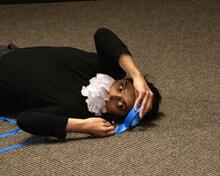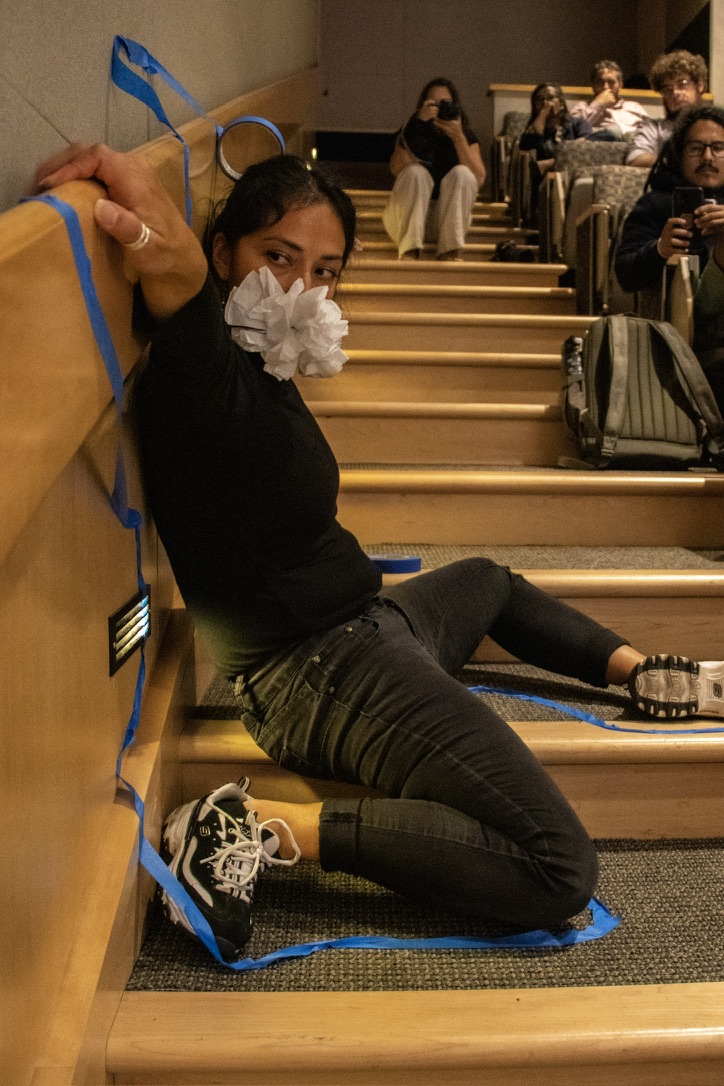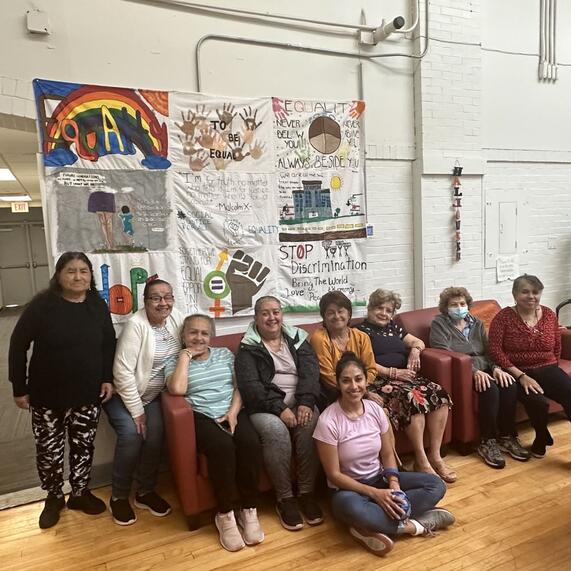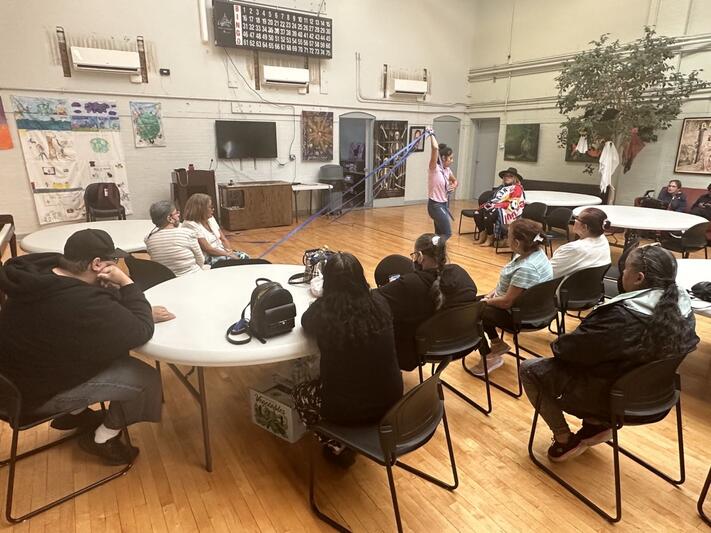Three Evenings with Mexican Performer Stephanie García Kickoffed the Hispanic Heritage Month

From Wednesday, September 20th to Friday, September 22nd, CLAIS was fortunate to host Utah-based Mexican performer Stephanie García for a series of events at Yale University to kick off the Hispanic Heritage Month 2023.
García is a multi-awarded Mexican multidisciplinary artist. Dance, film, choreography, and performance art are the mediums she uses in her work. García’s performance on September the 20th, Ofrenda: A Performance with Stephanie García, stirred audience members with its thought-provoking embodiment of Hispanic lived experiences in the United States. Her performance began with a series of prerecordedvideos. In one, García walks out of a garage holding a light fixture, post-it notes all over her body, dancing to the rhythm of the music playing alongside her; she is electric, each movement intentional as she rolls through open space and plays with her shadow along the wall.
García notes that she was incentivized by the racialized events taking place in the United States, which, for García, originally from Mexico City, has also become her daily context.
Stepping out onto the stage, García begins her performance. With a bouquet of paper flowers in her mouth and blue tape in hand, she traces the contours of her body in various positions across the stage: lying across a table, sitting on a chair, and slumped against the auditorium stairs. Memories of her body are laid bare for all to see as various audio clips echo through the performance hall: a news report in Spanish about domestic violence and murdered women in Argentina; climate activist Greta Thunberg’s famous 2019 address to the United Nations; news reports in English about ceremonies honoring native and indigenous people in the United States; among others. Finally, she hands—and throws—out paper flowers to the audience before disappearing from view.

When asked about her inspiration for this piece, García notes that she was incentivized by the racialized events taking place in the United States, which, for García, originally from Mexico City, has also become her daily context. When she was first invited to perform this piece at a public library in Salt Lake City, she wanted to work primarily with improvisation, to relay different aspects of her body in communicating disparate lived experiences. She prioritized working with materials that are widely accessible, but that also signal manual labor, such as tape and paper.
Maria Aguilar, a postdoctoral fellow at CLAIS, commented, “I wanted to ask her about how different audiences respond to her work, but I felt it was a very strong piece. García showed us the everyday violence against racialized bodies. She put that in front of us, and collectively, we processed it. The audio accompanying her performance not only reflected the violence in the Latin American context but also in the United States, where there is always violence against other bodies and experiences. It was a very powerful and important piece to visualize together; this violence that is sometimes reduced to numbers, or an anonymous story.”
Local families were excited to attend both events, particularly those with children interested in art and performance. For many residents, this was their first time attending an improvisational dance performance by a Mexican artist.
Ryan Shey, an undergraduate Political Science major at Yale College, remarked how “it was an interesting contextualization of dance and performance art. The blue tape was especially effective after three reveals. The auditory assemblage of interviews, languages and contexts was really powerful, and the dance reflected a lot of the spoken journalistic content. There was only so much space to be used in the auditorium, but García weaved it all together seamlessly, and it was very rewarding.”

On Thursday, September 21st, García hosted a performance and Q&A at the Fair Haven Public Library, and on Friday, September 22nd, hosted a meet and greet with local residents at the Atwater Center in Fair Haven. Local families were excited to attend both events, particularly those with children interested in art and performance. For many residents, this was their first time attending an improvisational dance performance by a Mexican artist.

Stephanie García is based in Salt Lake City, Utah, where she is currently developing a new improvisational group centered on gender and performance alongside the Yale-sponsored Latin American Interdisciplinary Gender Network (LAIGN).
By Inês Forjaz de Lacerda, Graduate Communications Fellow, ines.lacerda@yale.edu
